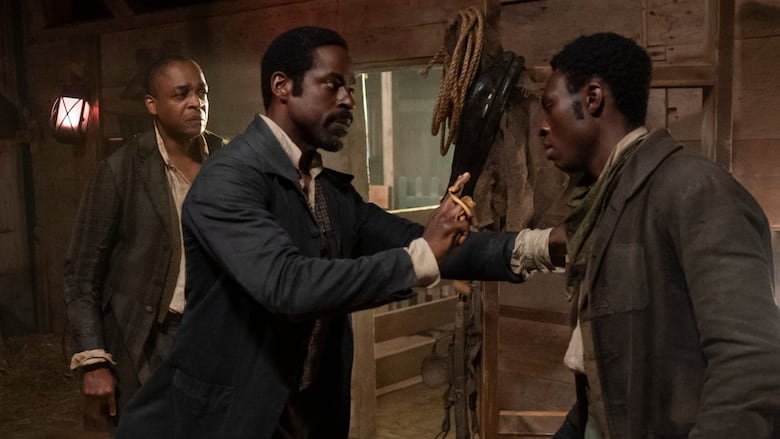How well does the show Washington Black capture Nova Scotia?
Culture critic El Jones and TV producer Floyd Kane discuss the merits of the new Hulu TV adaptation

Esi Edugyan's novel Washington Black is a modern Canadian classic.
Set in the 19th century, the epic story follows a young boy named George Washington Black who is born on a Barbados sugar plantation. He has an exceptionally sharp mind that leads him on an adventure around the world, to places like Virginia, Halifax, and even the Arctic.
The book was released in 2018 to critical acclaim, including a Giller Prize win. Now, it's been adapted into a TV show — but not by a Canadian production company. The Hulu original series is available to watch in Canada on Disney+.
Today on Commotion, culture critic El Jones and TV producer Floyd Kane join host Elamin Abdelmahmoud to talk about the new series, and what it gets right (and wrong) about Black Canadian history.
We've included some highlights below, edited for length and clarity. For the full discussion, listen and follow Commotion with Elamin Abdelmahmoud on your favourite podcast player.
Elamin: You are both Nova Scotians. This series is largely shot in Nova Scotia, Halifax, Peggy's Cove, Lunenburg. El, as a professor, what grade would you give the show in terms of its depiction of African Nova Scotian history?
El: What I do like is that Halifax is portrayed as at the centre of the world…. We often don't think of ourselves as central to global Blackness, and that is a beautiful thing. At the same time, as I think Floyd's about to get to as well, there's some historical difficulties — perhaps starting with the idea that we were the last stop on the Underground Railroad. I think that's a pretty loose interpretation of how Black people actually came to Halifax, most of which was not through the Underground Railroad.
Elamin: Those are the first words you hear in the show, right?
El: Yes, so I think it's simplified for an American audience, which is a shame because the history of Black journey into Halifax is actually a very wide-ranging and interesting one. And then of course — I know Floyd is gonna say this, so I don't wanna steal his thunder — but the accents are very American. It would be nice to actually see what is African Nova Scotia: the specific accents, the specific way of being that is unique to the nation that is Nova Scotia. Because they obviously want to universalize it and perhaps sell it into an American market, they want to kind of use the frame of, "Oh, it's Canada, this place of freedom," — but not actually give us the substantiveness that is Black Canada. So we end up— which by the way, when we were talking about 40 Acres, we kind of see the same thing: that often, we have these productions—
Elamin: 40 Acres is the movie that we talked about a few weeks ago.
El: —that will be set in Canada, yeah, but then really want to vibe [as] American just so it doesn't seem too Canadian. I think we see that here as well.
Elamin: Floyd, you know, El didn't want to steal your thunder, so let us hand you your thunder. Do you think the show would feel different if a Canadian had made it? Would there be a different kind of sensitivity there?
Floyd: I haven't read the book, but one of the things that I felt watching the TV show is that … he felt all of these things happen to him as a child.... It didn't always feel like those things were with him, if that makes sense? I feel like if Canadians made this, there probably would have been a bit more of that heaviness with him. But also, I have to say as a Nova Scotian and as a Canadian, I would have loved to have seen more of the geography of where those Black communities were actually settled. There's some amazing photography in this limited series, just incredible…. In some cases I'm like, "Wow, this would have played great in a movie theatre."
But I did kind of feel like when the Black characters were on-screen and in-community, I would have loved to have actually been in one of those communities, depicting what life was like in those communities at that time. It is very hard to get Canadian history on camera. Having an opportunity to tell Black Canadian history, it's five times as hard.
You can listen to the full discussion from today's show on CBC Listen or on our podcast, Commotion with Elamin Abdelmahmoud, available wherever you get your podcasts.
Panel produced by Jane van Koeverden.